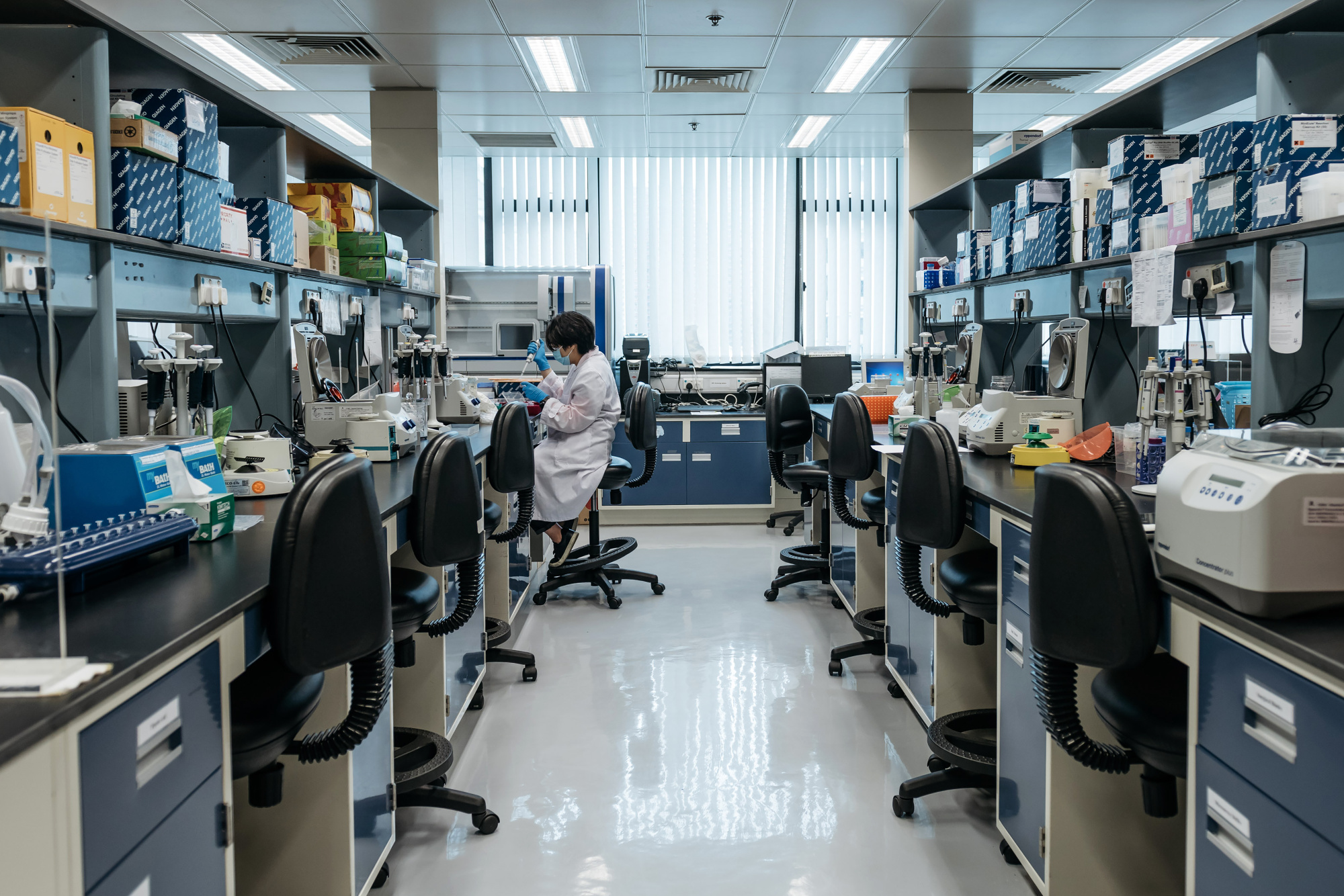The quest for a simple blood test to catch cancer early has attracted heavy hitters from Bill Gates to Merck & Co. Now there’s a glimpse of evidence that it can work, at least for one type of malignancy.
A study led by Hong Kong-based researchers and published this week in the New England Journal of Medicine used DNA fragments in the blood to detect a kind of head and neck cancer called nasopharyngeal carcinoma. The procedure, known as a “liquid biopsy,” caught the cancer earlier and more accurately than existing methods -- and ultimately boosted patients’ chances of survival.
The results could help the commercial prospects for Grail Inc., a closely held Silicon Valley startup that has raised more than $1.1 billion since its 2016 founding from investors including billionaires Gates and Jeff Bezos, as well as Merck and China’s Tencent Holdings Ltd. Dennis Lo, one of the study’s main authors and a professor in Hong Kong, is also the co-founder of a biotech company called Cirina, which agreed to merge with Grail in May.
The rise of technologies like genetic sequencing have spurred hopes that new, non-invasive tests could revolutionize cancer care. Detecting the disease early can make treatment dramatically more effective, and investors have been eager to fund ventures focused on such preventative health care.
“It’s our aspiration to create a commercial test” for nasopharyngeal carcinoma, said Grail’s president, Ken Drazan, in a phone interview. If successful, the test, to be marketed in Southeast Asia, would be Grail’s first product.
Viral DNA
Dozens of companies have worked to develop or sell some form of liquid biopsy test, according to a 2015 report from Piper Jaffray. But most have been focused on tests for patients who have already been diagnosed.
The dream of a non-invasive cancer-detecting test is based on findings that tumors are constantly shedding fragments of DNA into the bloodstream. While blood tests are already marketed to track a tumor’s mutation after it’s been diagnosed, detecting early-stage cancer is trickier, partly because the cancerous DNA is shed in much smaller amounts.
Nasopharyngeal carcinoma provided a proof-of-concept experiment for the team of researchers, which included Allen Chan, Rossa Chiu and Lo from the Li Ka Shing Institute of Health Sciences of the Chinese University of Hong Kong. All three are co-founders of Cirina.
The cancer, which is prevalent in southern China and Southeast Asia, arises from a confluence of factors: besides genetic mutations, it’s also associated with consumption of salted fish and smoking, as well as infection with the Epstein-Barr virus, which is a member of the herpes virus family.
Managing Costs
Though scientists still don’t fully understand how the Epstein-Barr virus gives rise to nasopharyngeal carcinoma, all patients who have the disease are found to also carry the virus, according to Grail’s head of clinical development, Mark Lee. The converse is not true: many people are infected with the Epstein-Barr virus without developing nasopharyngeal carcinoma. In that case, the virus will only be transiently found in the blood.
Over 20,000 people were tested for the DNA of Epstein–Barr virus, and 300 patients who tested positive twice were given in-depth examinations such as magnetic resonance imaging, or MRI, which led to 34 cancer diagnoses.
In the study, 70 percent of the diagnoses found the cancer in early stages, Lo said, adding that nasopharyngeal carcinoma typically goes undetected until later on, when patients report symptoms such as recurring nosebleeds.
The two blood tests cost a total of about $60. The researchers estimated that, given the rarity of the disease, to detect a single case, 593 participants would need to be screened at a cost of $28,600, including more endoscopies and MRI scans to confirm the diagnosis. Considering the potential to lower late-stage cancer treatment costs and decrease mortality, such screening could be worthwhile, the researchers wrote.
The data presented "suggest that lives have been saved because of this screening,” Richard Ambinder, a professor of oncology at Johns Hopkins School of Medicine who wasn’t involved in the study, wrote in an accompanying editorial in the journal.
Other Cancers
Before bringing any test to market, Grail would need to show extremely low rates of both false positives and false negatives -- the former could lead to unnecessary treatment, while the latter could give patients a mistaken sense of security.
Cancers that are related to viral infections are relatively easy and cheap to detect in human plasma using this method because viral DNA is very different from human DNA, Lo said. Other cancers will be more challenging, however, because cancer-causing mutations can be very small and may vary from patient to patient, he said.
Lo has expertise in a related area. In 1997, he discovered that fetal DNA can be isolated from the mother’s blood plasma for analysis. That spawned a widely used non-invasive prenatal test.
Grail is conducting two clinical trials, together aiming to enroll up to 130,000 people, according to its website. The first study seeks to map out how the genetic information of cancer differs from non-cancerous biology, and the second one will test a blood exam for early detection of breast cancer.
Lo’s university has licensed its cancer-related intellectual property to Cirina, giving the combined companies a very strong portfolio, Lo said.
“With the merger, in one go, we basically have a global presence looking at problems that are of major health-care impact,” he said. –Bloomberg
